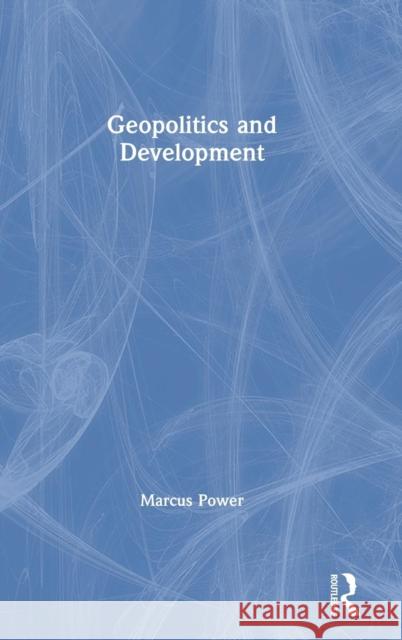Geopolitics and Development » książka
Geopolitics and Development
ISBN-13: 9780415519564 / Angielski / Twarda / 2019 / 410 str.
Geopolitics and Development
ISBN-13: 9780415519564 / Angielski / Twarda / 2019 / 410 str.
(netto: 931,00 VAT: 5%)
Najniższa cena z 30 dni: 881,54
ok. 16-18 dni roboczych.
Darmowa dostawa!
The focus of the book is both historical and contemporary, exploring the geopolitical enframing and imagination of development in key historical junctures such as the Cold War, the end of empire and the War on Terror but also examining what the rise of new state donors such as China, Brazil and India means for established modes of development co-operation and the development paradigm as a whole. In particular the book seeks to further the dialogue between critical geopolitics, critical IR and critical development studies in setting out the contours of a postcolonial geopolitics of development that both incorporates an engagement with the complex and rich experiences and scholarship of different parts of the non-western world and seeks to move beyond the parochialism of much Political Geography and IR scholarship. Thus a key theme throughout the book will be the ways in which understandings of geopolitics and readings of the contemporary geopolitical landscape are context specific and differ between North and South (and even within and between different regions of the South).
This text provides a unique and original analysis and review of key contemporary shifts in the landscape of international development including the emergence of new metageographies of development (such as enclaves), the growing importance of social movements based around resistance and protest in the South and the changing understandings of foreign aid and visions of south-south cooperation. In addition one of the major themes of the book is the way in which established conceptions of development are currently being challenged, either by the rise of new 'Southern' donors pursuing their own state-led visions of international cooperation from above or by the growth of social movements formulating alternative visions of development from below, highlighting the pressing need to reconsider established discourses on development and to formulate new interdisciplinary and postcolonial dialogues and perspectives. Drawing on the author's rich original empirical research, whilst condensing existing published and unpublished material, this is an essential and unique critical analysis and review aimed at academics and students working in the field of development within a wide range of disciplines.
"











